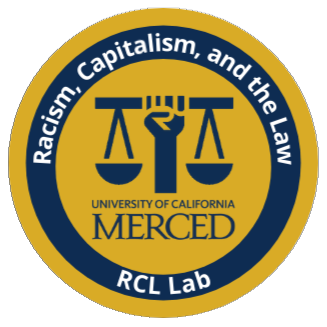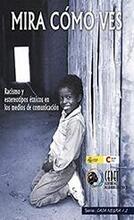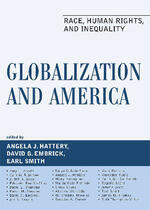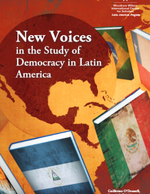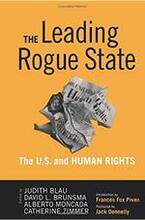This article explores how race and color labels are used to describe people in an Afro-Peruvian community. This article is based on analyses of 88 interviews and 18 months of fieldwork in an African-descended community in Peru. The analyses of these data reveal that, if we consider race and color to be conceptually distinct, there is no "mulatto escape hatch," no social or cultural whitening, and no continuum of racial categories in the black Peruvian community under study. This article considers the implications of drawing a conceptual distinction between race and color for research on racial classifications in Latin America.
Publications
2010
Undocumented migrants are not criminals. Detention is not prison. Deportation is not punishment. These are truths in the legal system of the United States. However, undocumented migrants are treated like criminals; detainees feel as if they are in prison; and deportees experience their exclusion as punishment. This article examines the contradictions between legal arguments which indicate that immigration proceedings are not criminal proceedings and the experiences of deportees who often feel as if they were treated like criminals and that banishment from the country in which they have lived most of their lives is a cruel punishment.
2009
This article provides a genealogy of the idea of an immigration industrial complex.The immigration industrial complex isthe confluence of public and privatesector interests in the criminalizationof undocumented migration, immigrationlaw enforcement, and the promotion of ‘anti-illegal’ rhetoric. This concept isbased on ideas developed with regardto the prison and military industrialcomplexes. These three complexes sharethree major features: (a) a rhetoric offear; (b) the convergence of powerful interests; and (c) a discourse of other-ization.This article explores why Congress has notpassed viable legislation to deal withundocumented migration, and instead has passed laws destined to fail, and hasappropriated billions of dollars to the Department of Homeland Security toimplement these laws. This has been exacerbated in the context of the War on Terror,now that national security has been conflated with immigration law enforcement.This is the first in a two-part serieson the immigration industrial complex.
The concept of an immigration industrial complex draws from previous work on the prison industrial complex and the military industrial complex. All three of these complexes point to the ways that the interests of government bureaucracies, corporate elites, and politicians shape laws and policies. This article explains how the undocumented status of migrants provides advantages to at least three groups: (a) media pundits who make their careers railing against ‘illegal aliens’; (b) politicians who use undocumented migrants as scapegoats; and (c) contractors who profit from massive immigration enforcement expenditures. The disenfranchised status of undocumented migrants enhances the ability of each of these groups to benefit from their presence. This confluence of interests explains why Congress has not enacted viable immigration policies that effectively deal with the ‘problem’ of illegal immigration. This is the second in a two-part series on the immigration industrial complex.
2008
As globalization expands, more than goods and information are traded between the countries of the world. Hattery, Embrick, and Smith present a collection of essays that explore the ways in which issues of human rights and social inequality are shared globally. The editors focus on the United States’ role in contributing to human rights violations both inside and outside its borders. Essays on contemporary issues such as immigration, colonialism, and reparations are used to illustrate how the U.S. and the rest of the world are inextricably linked in their relationships to human rights violations and social inequality. Contributors include Judith Blau, Eduardo Bonilla-Silva, and Joe R. Feagin.

